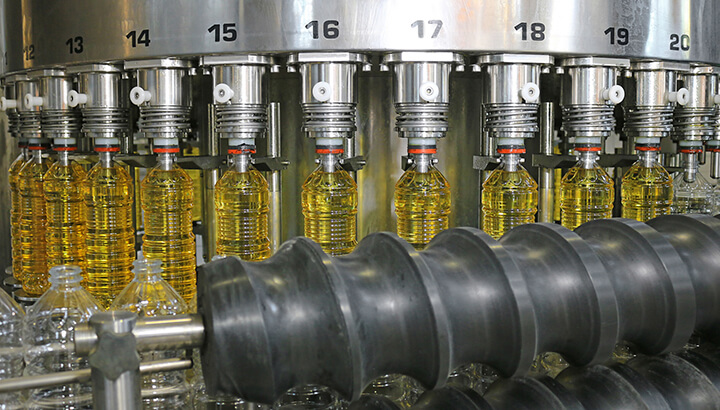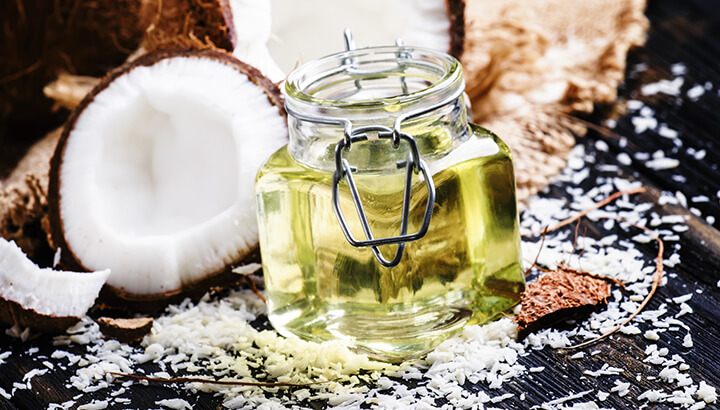
When it comes to cooking for your family, vegetable and seed-based cooking oils, like sunflower oil, seem like the healthiest option, right? Not necessarily. Here’s why you should toss your sunflower oil — and all vegetable oils for that matter.
Is sunflower oil natural?
Sunflower seeds are wonderful for you, provided they come from a sustainable, uncontaminated source. They contain plenty of vitamins and minerals, like vitamin E, copper, thiamine, phosphorus and more. But just because the seed itself is healthy for you, doesn’t mean the oil is healthy too.
Here’s a little food for thought: sunflower oil wasn’t even present in our diet until modern processing techniques were brought about in the early 1900s. Unlike butter or coconut oil, sunflower oil doesn’t separate from the seed naturally. Perhaps it was never meant for human consumption.
Here are four more reasons you might want to avoid sunflower oil:
1. The seeds are highly processed to make oil
Factories, machines and harsh chemicals — do those sound natural to you? Sunflower oil belongs to a class of products called vegetable oils, along with soybean oil, corn oil and canola oil. And vegetable oils have a bad reputation, for good reason. In each of these cases, the seeds or plants are heavily processed using high temperatures, mechanical pressing, harsh solvents and bleach.
If the sunflower oil you’re using is hydrogenated (contains added hydrogen), then it also contains trans fats, which researchers have linked to dangerous conditions like obesity, high blood pressure and cardiovascular disease. Trans fats are so disruptive because they decrease HDL (“good”) cholesterol and simultaneously increase LDL (“bad”) cholesterol.
Though pure liquid sunflower oil is usually non-hydrogenated, that may not be the case for the processed foods you eat. Trans fats from sunflower oil may be in your favorite brand of salad dressing, mayo, cookies and more. Even more frightening, you may not even see “trans fats” listed on the label at all. If the product contains 0.5 grams or less of trans fat per serving, food manufacturers are allowed to list it at “zero,” per FDA requirements. Very sneaky, indeed.
2. The molecular structure isn’t stable
When we talk about oils, you’ll hear a lot about the different types of fats. Here’s a simple overview that will explain the dangers of vegetable oils a little better:
- Saturated fats: contain no double bonds
- Monounsaturated fats: contain one double bond
- Polyunsaturated fats: contain two or more double bonds
Sunflower oil is high in polyunsaturated fats, meaning it has multiple bonds. When you cook with it at high temperatures, the fatty acids react with oxygen (called oxidation). It may sound innocuous enough, but this can actually result in the production of harmful compounds, such as alcohols, aldehydes and ketones, according to research. In this way, the food you’re cooking with sunflower oil can go from healthy to toxic for your body.
3. It may contribute to disease

Vegetable oils, including sunflower, are high in omega-6 essential fatty acids, disrupting the careful balance between omega-6 and omega-3 fatty acids in the body. When the body has too many omega-6 fatty acids, inflammation occurs. And of course, chronic inflammation is linked to all sorts of health problems in Western culture, including depression, liver damage, heart disease, cancer, diabetes, arthritis, Alzheimer’s and more. Research even shows that a diet rich in omega-6s can cause altered immune function and asthma in young children — yikes!
4. It may contain synthetic antioxidants
BHA, BHT and tert-Butylhydroquinone (TBHQ) are widely used in the processed food industry to prevent oxidation and keep products fresher for longer. However, some studies have reported that synthetic antioxidants like BHA and BHT may have side effects and carcinogenic activity. That’s fancy talk for one thing we all want to avoid: cancer. These types of chemicals have also been linked to liver damage, kidney issues, immune dysfunction and high cholesterol. No, thank you.
Other oils to avoid
Apart from sunflower oil, other vegetable and seed-based oils are similarly disturbing. Often times they are grown using GMO seeds, then they undergo a harsh chemical process to look like they do on store shelves. Here are a few more cooking oils to keep out of your kitchen:
- Canola (or rapeseed) oil
- Soybean oil
- Corn oil
- Safflower oil
- Cottonseed oil
- Peanut oil
- Sesame oil
- Rice bran oil
Even though it’s not processed the same way as sunflower oil, we have to throw palm oil onto the no-go list for the sheer environmental degradation it causes. It is estimated to be used in over half of all packaged products commonly found in grocery stores, which is why the industry is expanding so rapidly. Make sure all your labels are palm-oil free!
Which cooking oils to use instead

When healthy sources of saturated fat were condemned by governments around the world, there was an increase in vegetable oil consumption. Back then, consumers believed them to be a “heart-healthy” alternative to traditional sources of fat. However, despite decades of medical misinformation, now we know better.
Here are a few healthy oils to stock in your kitchen:
- Coconut oil: contains medium chain fatty acids and lauric acid to burn off stubborn belly fat, reduce inflammation, aid detoxification and even prevent gingivitis.
- Avocado oil: filled with heart-healthy compounds while boosting nutrient absorption and stabilizing blood pressure.
- Extra virgin olive oil: rich in antioxidants that lower blood pressure, boost your immune system and kick your sex drive into high gear. Maybe the Mediterranean folk are onto something, right?
Those are some of our favorite oils to keep us glowing from the inside out. Plus, there are several more healthy options can use in the kitchen, like ghee, butter and beef tallow. Just make sure that you’re aware of the smoke point of your favorite oils. Happy cooking!
— The Alternative Daily

